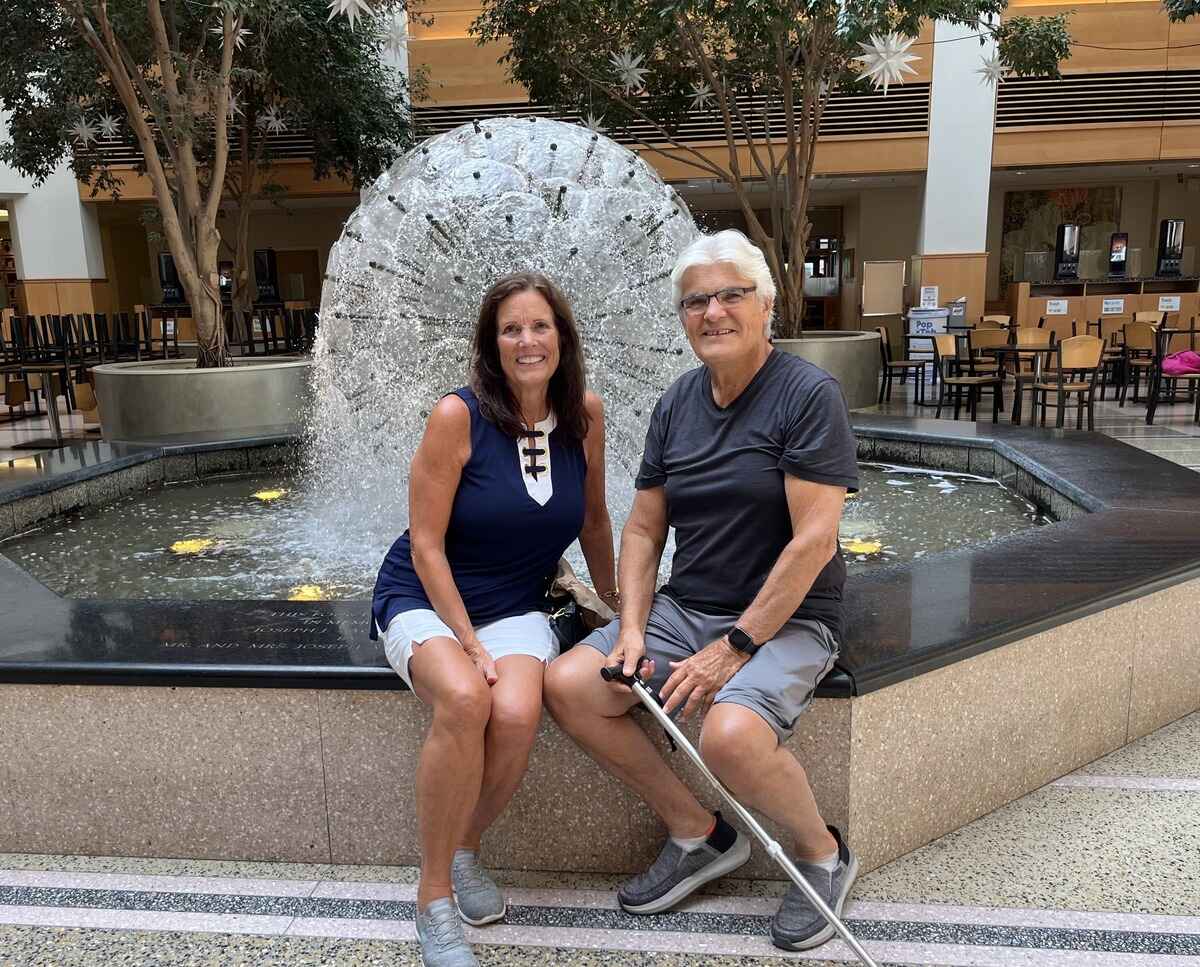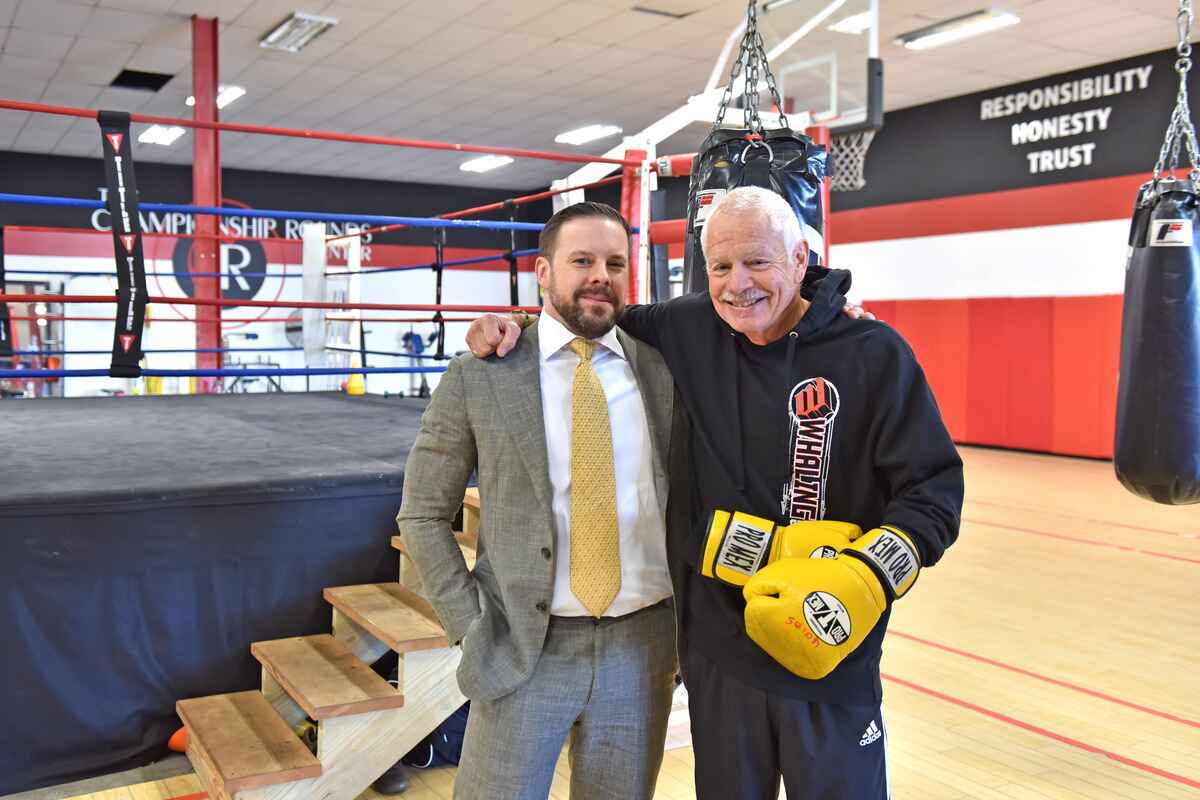Patients sometimes think of a clinical trial as something to consider only after all other treatment options are exhausted. But the wealth of knowledge that researchers and physicians at Smilow Cancer Hospital have accumulated through their extensive clinical trial portfolio has enabled them to offer trials to patients earlier in the course of their cancer – patients like Cynthia Bartley.
In early 2019, Mrs. Bartley developed a persistent cough. A former smoker, she became worried when she started coughing up blood. Her primary care physician ordered scans that detected a node on her right lung. After an endoscopy, she was diagnosed with non-small cell lung cancer.
There was never any question where Mrs. Bartley would go for treatment. Smilow Cancer Hospital is a two-minute walk away from the Yale School of Medicine, where she works as a senior administrative assistant for a group of transplant surgeons. “I feel very fortunate to be at such a prestigious institute,” she said. “Smilow Cancer Hospital is one of the best in the United States.”
In May 2019, Justin Blasberg, MD, MPH, FACS, Associate Professor of Surgery (Thoracic Surgery), removed the upper lobe of her right lung and gave her a clean bill of health. However, in September, the cough returned. A new CAT scan revealed the lung cancer was back, too. On Dr. Blasberg’s referral, Mrs. Bartley consulted with Sarah Goldberg, MD, MPH, Associate Professor of Internal Medicine (Medical Oncology) and Research Director for the Center for Thoracic Cancers at Smilow Cancer Hospital and Yale Cancer Center.
“Dr. Goldberg is so kind and very patient,” said Mrs. Bartley. “I felt completely comfortable and confident in her care.” Mrs. Bartley was preparing to start chemotherapy when Dr. Goldberg suggested another option: a clinical trial looking at an immunotherapy. “I felt like I would be helping science and other patients by participating in the study,” Mrs. Bartley said. “If things didn’t work out on the trial, I would still be able to go on chemotherapy or other treatments. It was a pretty clear path to choose.”
The clinical trial combined two immunotherapy medicines: nivolumab and ipilimumab, which target different pathways by which cancer cells disrupt the immune response. In fact, the combination received FDA approval as a first-line treatment for certain patients with non-small cell lung cancer while Mrs. Bartley was in the trial.
“We already had a lot of experience with this combination in other clinical trials, both in lung cancer and in melanoma,” said Dr. Goldberg. “We had a good understanding of its side effects, how well it’s tolerated and the possibility of a long-term benefit in patients with lung cancer, which is always what we are looking for. So, when we have that knowledge, we are a lot more comfortable using it as an earlier treatment.”
That quest for knowledge continued through Mrs. Bartley’s participation in the clinical trial. She and her fellow participants had extra PET scans, bloodwork and other tests to closely monitor their progress. “We do all of these tests to try to understand more about immunotherapy so we can better help patients in the future,” said Dr. Goldberg.
Mrs. Bartley responded extremely well to the combination therapy. “I would walk out of Smilow thinking, ‘Do I have cancer? Aren’t I supposed to feel sick?’ I felt healthy, like I had prior to the diagnosis,” she said.
In December 2020, about a year after she started on the trial, she developed gastric inflammation, a side effect of immunotherapy. Her treatment was paused and she received steroids for the inflammation. Her scans were clear – and have remained so since then.
“She had what we call a ‘complete response’ in clinical trials lingo,” explained Dr. Goldberg. “She had a disappearance of all the disease that had been visible earlier on scans. I’ve seen it many times now in patients on immune therapy, but it’s still always so amazing and exciting to see. It’s a good indicator that she might do very well on this treatment for a very long time.”
Mrs. Bartley feels great. She has rejoined the gym and been working out faithfully. She’s eagerly looking forward to the birth of her first grandchildren - twin boys – in two months. She will retire soon, which will allow her and her husband, Mike, to take a trip to Italy or Ireland – or maybe both. And she is taking to heart advice she received during the trial from clinical research nurse Elin Rowen. “Elin told me, ‘Cindy, just live your life.’ I have been going by that mantra ever since.”




